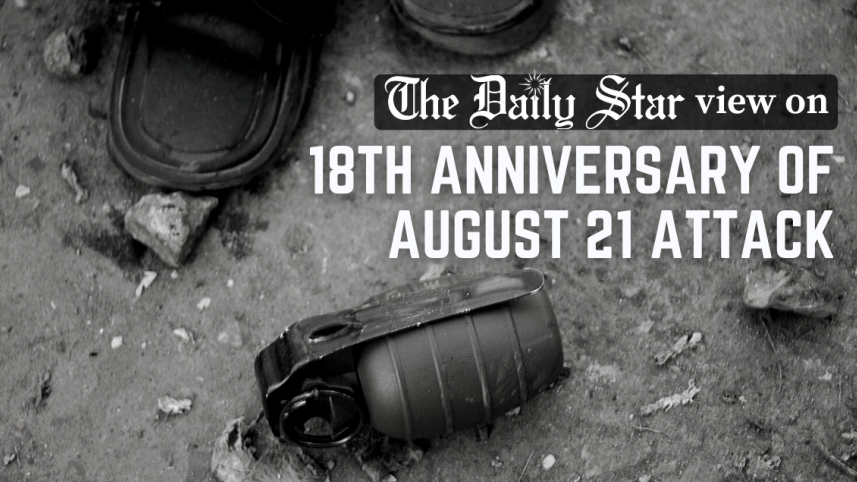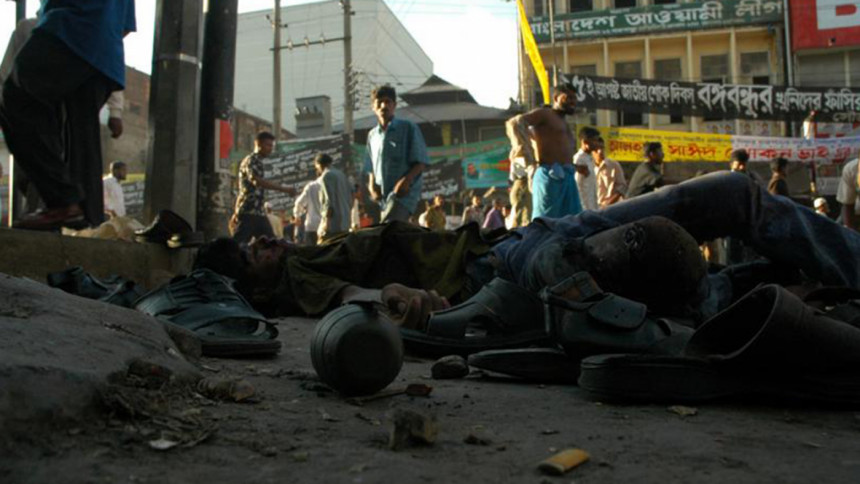A dark day in our history

August 21, 2004 is a day that will live in infamy, for on that day, a most terrible attempt was made not only to kill off the entire top brass of then-opposition Awami League, but also our democracy. And what is most terrifying is that the state itself became accessory to that. Despite the fact that mercenaries were used to throw the grenades, all relevant branches of the state collectively worked to save the criminals and divert attention away from the real culprits, as was later discovered. And this politicisation of the state apparatus, going as far as to turn it into an abettor of terrorist activities, has done immense damage to our democracy from which we have not yet recovered.
The main target of the grenade attack was no doubt the current prime minister, who then led the opposition camp. She herself said, on many occasions, that an attack of this magnitude could not have been carried out in broad daylight without the support of the government of the day. The destruction of evidence, lack of seriousness in investigating the tragedy, followed by political efforts to downplay it all indicate complicity of the then government. Even though Sheikh Hasina managed to survive the assassination attempt, more than 24 people were killed, and scores injured. It is incumbent upon the present government to ensure that they get the justice that has been denied to them for so long. Additionally, some of the details of the incident still remain murky to this day. It is extremely important that the truth is unearthed in its entirety, and for the people of this country to know exactly who were involved in that dreadful plot.
On the political front, the attack demonstrated a total disregard for democracy and constitutional politics. As a result, the two-party system – with power alternating between the AL and BNP – which could have been a blessing for the country was perhaps destroyed for good. The stakes of coming to power became a matter of life and death. And the will of the people started to get pushed further and further back.
Some of the details of the incident remain murky to this day. It is extremely important that the truth is unearthed in its entirety, and for the people to know exactly who were involved in that dreadful plot.
It is for these reasons that we should take lessons from that day. Firstly, we must remain vigilant against such political assassinations, which also cost the country dearly in the past. The use of state apparatus to destroy one's political opposition must be shunned. The stakes of coming to power must never become a matter of survival. The institution of democracy should also be safeguarded through the voting of the people, not by politicising and abusing the state administration.



 For all latest news, follow The Daily Star's Google News channel.
For all latest news, follow The Daily Star's Google News channel. 

Comments